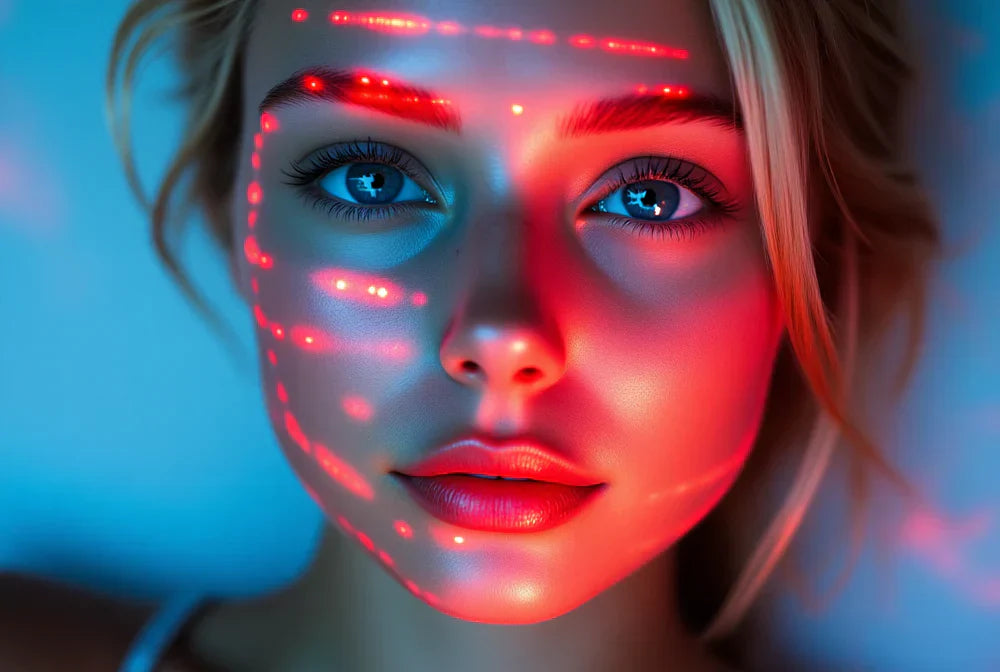Imagine this: after a long, demanding day, you finally crawl into bed, yearning for the sweet embrace of sleep. Yet, despite your fatigue, sleep remains elusive. If this sounds familiar, you're not alone. Many individuals grapple with the perplexing issue of being tired but unable to sleep, a challenge that can sap productivity and diminish well-being. Fortunately, there are effective strategies to break this cycle. By exploring the science of sleep and implementing targeted hacks, you can transform your nights into a sanctuary of rest and your days into a canvas of vibrant energy.
Why Proper Sleep Matters
The foundation of a lively and successful existence is proper sleep, which also supports mental and physical wellness. All vital for preserving ideal health, our bodies go through important activities including cell repair, hormones control, and memory consolidation as we sleep. Enough rest improves cognitive ability, increases mood, and strengthens the immune system, therefore helping us to meet daily tasks with resilience and clarity. On the other hand, long-term sleep deprivation can cause a variety of problems including worse judgment, more stress, and a higher chance of chronic diseases including diabetes and heart disease. Giving great sleep first priority helps us to enable ourselves to operate at our best, therefore promoting a life of balance, energy, and fulfillment.
Why Am I Tired But Can’t Sleep?
The Stress and Anxiety Connection
One of the primary culprits behind the paradox of feeling tired yet unable to sleep is stress and anxiety. In our fast-paced lives, the mind often races with thoughts of unfinished tasks, looming deadlines, and personal worries, making it difficult to unwind. This increased level of awareness sets off stress chemicals like cortisol, which could throw off the body's typical sleep-wake cycle. Learning to control stress by mindfulness, meditation, or relaxation techniques can be a game-changer in stress reduction, therefore soothing the mind and opening the path for peaceful sleep.
The Impact of Screen Time
The ubiquitous use of screens—for work, leisure, or social interaction—in our digital era can seriously disturb our sleep cycles. The blue light produced by laptops, tablets, and cellphones suppresses the melatonin synthesis, the hormone in charge of controlling sleep. This can lead to difficulty falling asleep and staying asleep, despite feeling exhausted. To combat this, consider implementing a digital curfew by reducing screen time at least an hour before bed, or using blue light filters to minimize its impact on your sleep.
Lifestyle and Dietary Factors
Our daily habits and dietary choices can also be pivotal in why we might feel tired but can't sleep. Consuming caffeine, alcohol, or nicotine close to bedtime can stimulate the nervous system, making it harder to relax. Similarly, irregular sleep schedules, lack of physical activity, or heavy meals late in the evening can disrupt the body's internal clock. By adopting a consistent sleep routine, engaging in regular exercise, and making mindful dietary choices, you can create an environment conducive to restorative sleep.
Underlying Health Conditions
Sometimes, the inability to sleep despite feeling tired may be linked to underlying health conditions. Sleep quality can be seriously disrupted by restless leg syndrome, sleep apnea, or persistent discomfort. Furthermore aggravating sleep disorder might be mental health problems such as depression, anxiety or sadness; See a healthcare professional if you believe a medical problem is interfering with your sleep to get insightful advice and direction toward suitable treatment choices, ensure you get the peaceful sleep you are due.
Is This a Common Problem?
Absolutely, the struggle of feeling tired but unable to sleep is a common issue that affects a significant portion of the population. In today's high-pressure world, where stress levels are elevated and digital distractions are omnipresent, many individuals find themselves caught in this frustrating cycle. According to various studies, a substantial number of adults report experiencing insomnia or sleep disturbances at some point in their lives. This widespread problem transcends demographics, impacting professionals, students, and parents alike, all of whom are striving to balance demanding schedules with the need for restorative rest. Recognizing the prevalence of this issue is the first step toward addressing it, empowering individuals to seek solutions and improve their sleep quality for a healthier, more energized life.
How To Support Sleep When Tired: Sleep Hacks
- Establish a Consistent Sleep Schedule: One of the most effective ways to support sleep is by maintaining a regular sleep routine. Going to bed and waking up at the same time every day, even on weekends, helps regulate your body's internal clock, making it easier to fall asleep and wake up naturally. This consistency reinforces your sleep-wake cycle, promoting better sleep quality over time.
- Create a Relaxing Bedtime Routine: Engaging in calming activities before bed can signal to your body that it's time to wind down. Consider incorporating practices such as reading a book, taking a warm bath, or practicing gentle yoga or meditation. These activities can help reduce stress and prepare your mind and body for a restful night's sleep.
- Optimize Your Sleep Environment: Your bedroom should be a sanctuary for sleep. Ensure that it is cool, dark, and quiet, using blackout curtains, earplugs, or white noise machines if necessary. Investing in a comfortable mattress and pillows can also make a significant difference in your sleep quality, providing the physical support your body needs to relax fully.
- Limit Stimulants and Heavy Meals: To support sleep, it's crucial to be mindful of what you consume in the hours leading up to bedtime. Avoid caffeine and nicotine, as they can interfere with your ability to fall asleep. Additionally, try to have your last meal at least two to three hours before bed to prevent discomfort from digestion that might disrupt your sleep.
- Red Light Therapy: This innovative method involves using red light wavelengths to enhance sleep quality. Unlike blue light, which can suppress melatonin production, red light is believed to have a calming effect on the body, promoting relaxation and improving sleep. Incorporating red light therapy into your bedtime routine, either through specialized lamps or light bulbs, can be a powerful tool in supporting restful sleep and helping you wake up feeling refreshed.
Why Consider Red Light Therapy As a Sleep Hack?
Red light therapy is emerging as a promising sleep hack due to its unique ability to support the body's natural sleep processes without the disruptive effects associated with other types of light. Unlike blue light, which can inhibit melatonin production and disrupt circadian rhythms, red light has a soothing effect that can enhance relaxation and promote deeper, more restorative sleep. This therapy works by penetrating the skin and influencing cellular energy production, which may help regulate the sleep-wake cycle and improve overall sleep quality. For individuals seeking a non-invasive, natural solution to enhance their sleep, red light therapy offers an innovative approach that aligns with the body's biological rhythms, making it an attractive option for those struggling with sleep disturbances.
How Do You Incorporate Red Light Therapy Into Your Nightly Routine?
Incorporating red light therapy into your nightly routine is a straightforward process that can seamlessly blend into your existing pre-sleep rituals. Begin by selecting a red light therapy device, such as a lamp or light panel, designed for home use. About 30 minutes before bedtime, dim the lights in your room and switch on the red light device, allowing its gentle glow to create a calming atmosphere. You can use this time to engage in relaxing activities, such as reading or meditating, while basking in the soothing red light. This exposure helps signal to your body that it's time to wind down, promoting the natural production of melatonin and preparing you for a restful night's sleep. By consistently incorporating red light therapy into your evening routine, you can enhance your sleep quality and wake up feeling rejuvenated.
Conclusion
In conclusion, the journey to overcoming the frustrating cycle of overtiredness, feeling tired yet unable to sleep, is both achievable and empowering. By understanding the underlying causes—ranging from poor sleep hygiene, caffeine, stress, and screen time to lifestyle choices and health conditions—you can take proactive steps to reclaim your nights and enhance your well-being. Implementing practical sleep hacks, such as establishing a consistent sleep schedule, optimizing your sleep environment, and exploring innovative solutions like red light therapy, can transform your sleep experience. Embrace these strategies with confidence, knowing that by prioritizing quality rest, you are investing in a more energized, productive, and fulfilling life. Remember, the power to improve your sleep lies within your reach, and with determination and the right tools, restful nights are well within your grasp.
Final Thoughts
Have you considered how red light therapy might enhance not just your sleep, but your skincare regimen as well? At EMR-TEK, we provide state-of-the-art red light therapy devices that set the standard for quality and innovation. Whether you're in search of portable units for on-the-go use or larger systems for a comprehensive home experience, our diverse offerings are designed to suit various lifestyles and environments. Explore our products and discover the perfect device to enhance your wellness journey with advanced technology.
Sources
- https://health.ucdavis.edu/blog/cultivating-health/better-sleep-why-its-important-for-your-health-and-tips-to-sleep-soundly/2023/03
- https://www.sleepfoundation.org/physical-health/diet-exercise-sleep
- https://www.cnet.com/health/sleep/telltale-signs-of-insomnia/
Disclaimer: EMR-TEK’s red infrared light therapy devices, blue light blocking glasses, and other products are intended solely for personal wellness and fitness use. They are not designed to diagnose, treat, cure, or prevent any disease and should not be considered medical devices. We do not make any therapeutic claims. Our products align with the FDA’s “General Wellness: Policy on Low Risk Devices” guidelines and do not require FDA clearance. Please note, EMR-TEK’s products are for personal use only and not for commercial application.




Share:
PEMF vs Red Light Therapy: What’s The Difference?
How To Test Blue Light Glasses: Step-by-Step